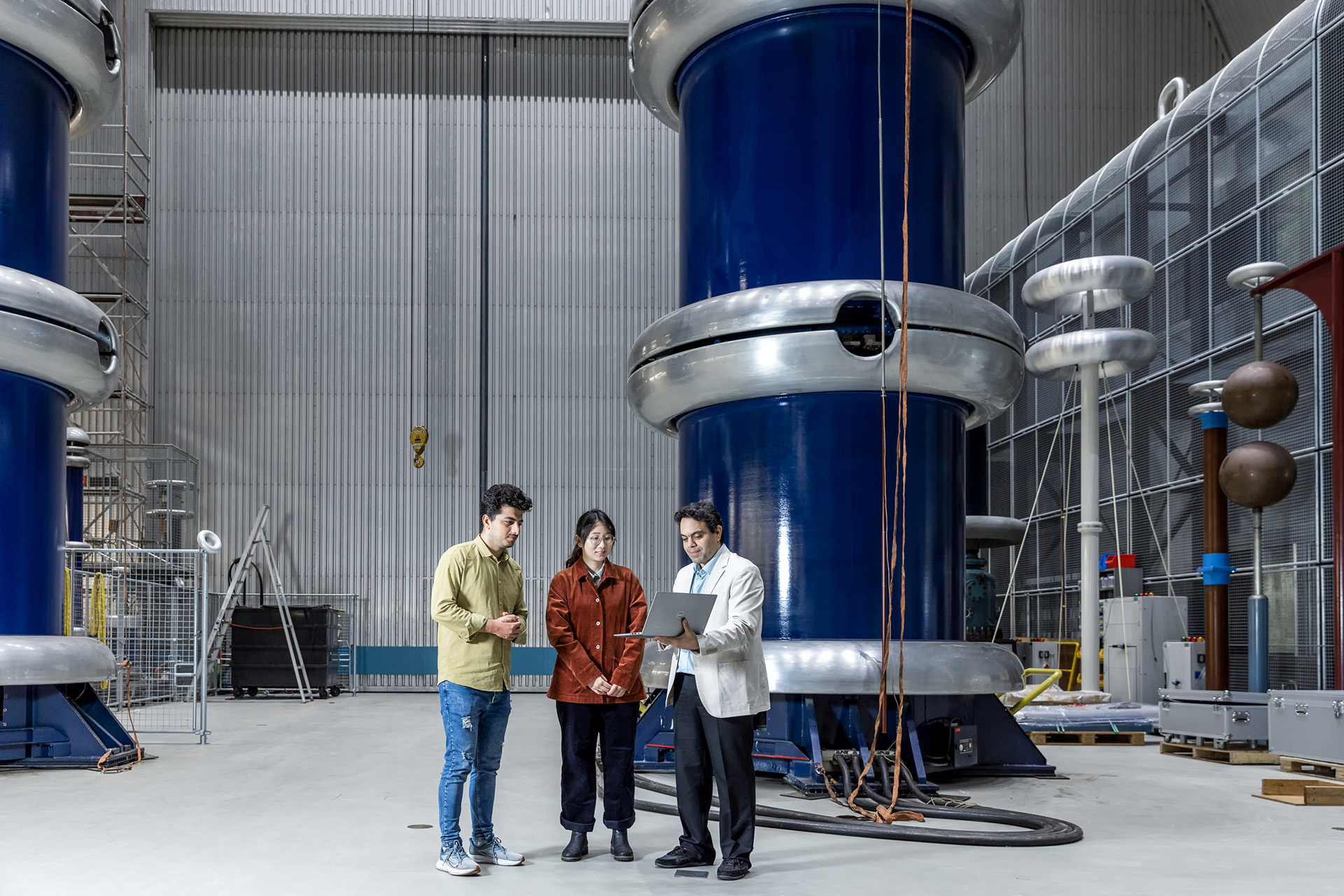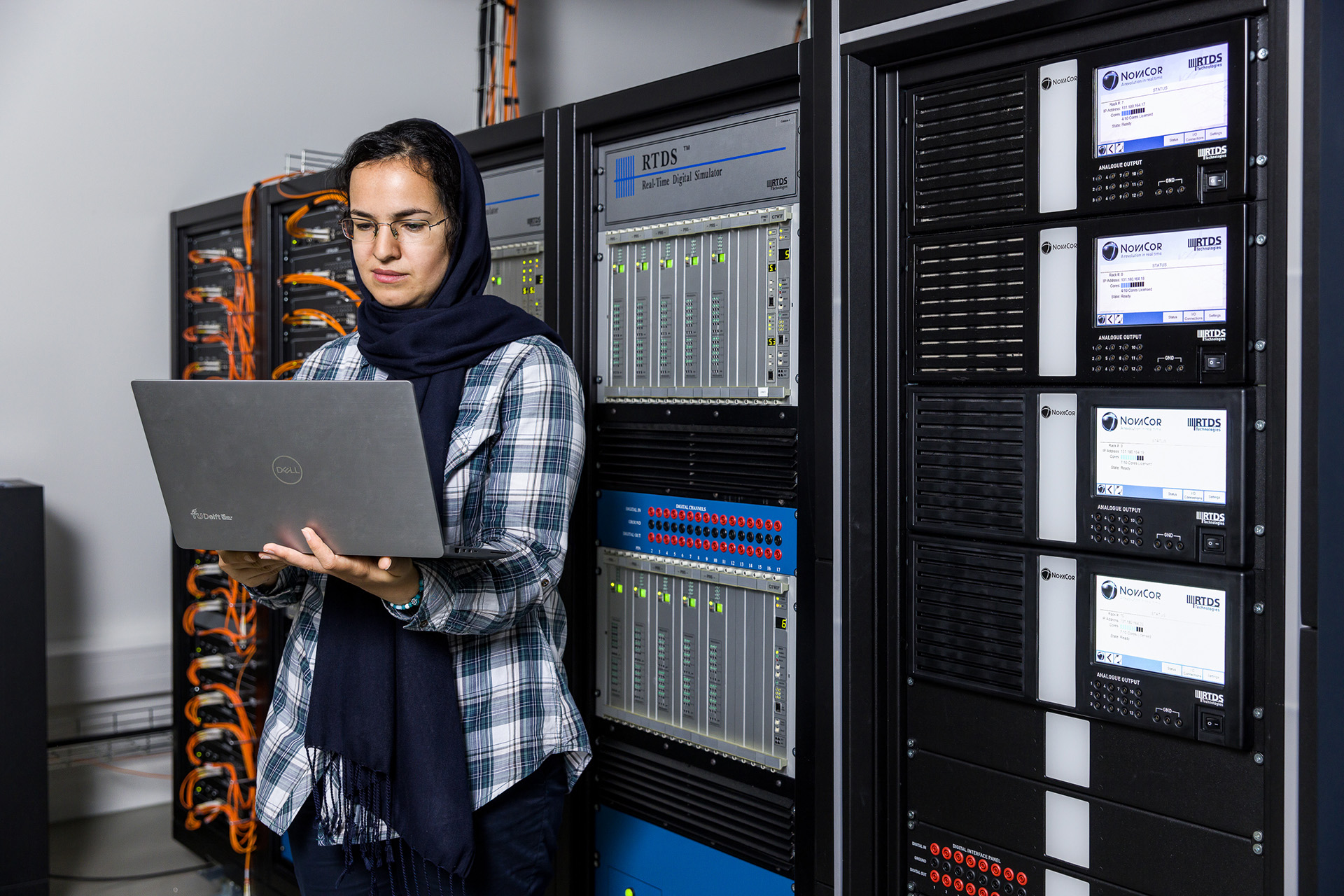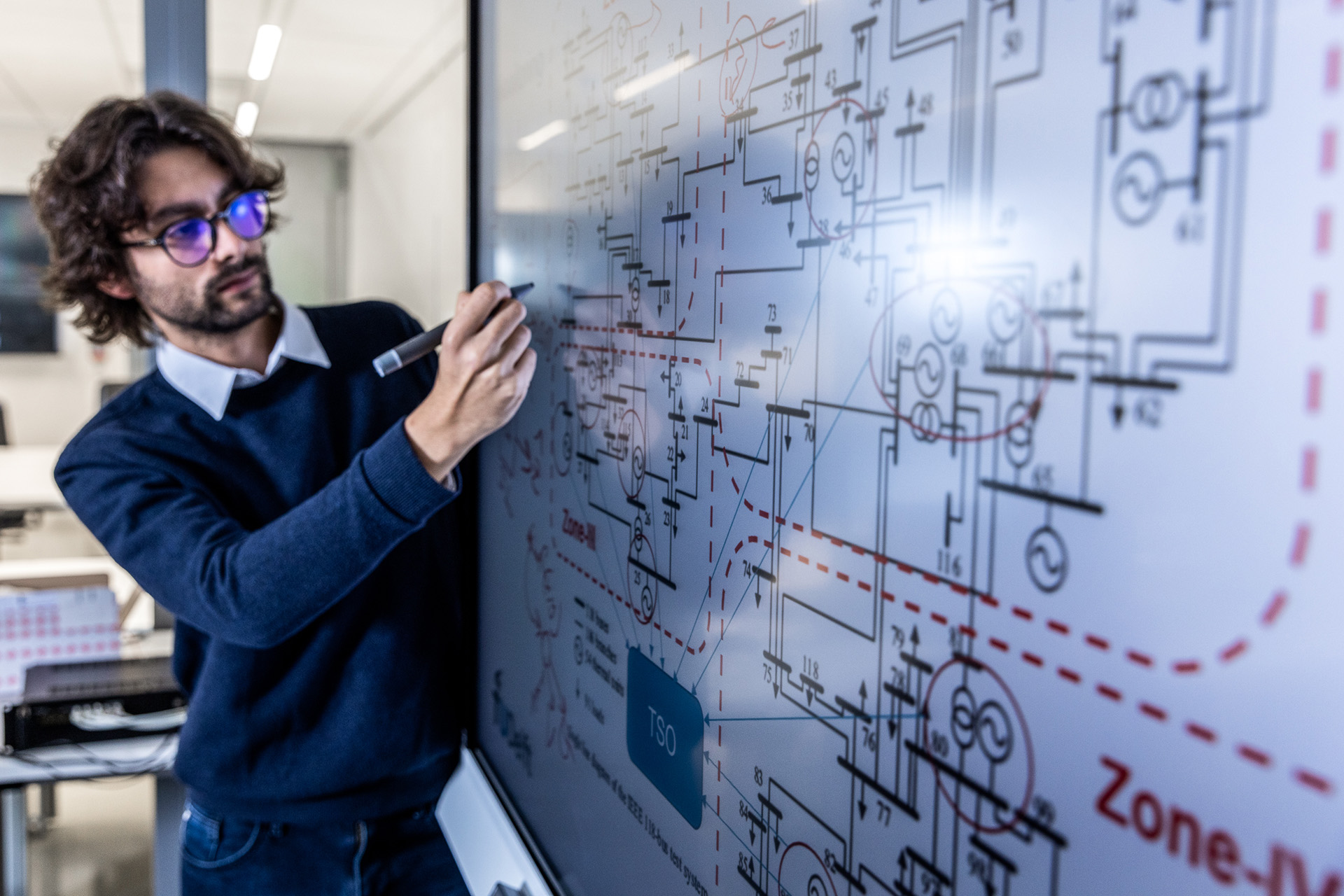Delft AI Energy Lab
The transition towards the zero-carbon future requires the reliable and flexible control of power systems. Although physical models of power systems are known, they are often too complex for large-scale energy control systems. At the same time, future energy technologies are digital and deliver abundant (operating) data. Our vision is to inform AI with applied physical modelling to develop the control systems for our sustainable energy future. For instance, Artificial Neural Networks (ANNs) have demonstrated initial breakthrough results in the energy industry for the accurate prediction of solar and wind energy. However, to unlock the full capability of ANNs beyond predictions is becoming challenging in the energy system. AI can make predicting errors and is sometimes unreliable in decisions. Hence, plug-and-play, “black-box type” AI approaches will not become adopted very soon. More promising are hybrid-approaches of AI and applied physical-models as they combine the best of two worlds: the reliability from physical control models and the efficiency of AI. In the last few years, a novel research area emerged that is on combining AI with expert knowledge and physical theory. This area can be broadly referred to as Theory Guided Data Science (TGDS).

Our research addresses challenges of our sustainable future: In the past, fossil-fuel based generators acted as natural stabilisers of dynamics. However, the renewable future must monitor the dynamic stability. Model-based monitoring of dynamic stability is too complex and inefficient. AI-based real-time monitoring of dynamics can be efficient. A large amount of new energy technologies (e.g., batteries, electric vehicles) results in highly complex systems. Currently, energy control tools use heuristic-based approximations of the complexity, but still are too slow for corrective control. Hence, they are only used for conservative, preventive control. ML-based approaches are fast having the potential for effective real-time corrective control.

Our research addresses two fundamental challenges in AI: The generalisation of AI to data not in training is often a barrier for their applicability. Current approaches to predict time-domain data assume the system is time-invariant. However, disruptions can change the system in time. Guaranteeing stability to time-changing systems is very important for AI-for-control. Typically, in ML, a machine is trained to predict output for a given input. However, little research was done to use the same machine for controlling the input and constraining the output. Theory for an ML-based inversion-control approach has the potential to address this challenge.

The Delft AI Energy Lab is part of the TU Delft AI Labs programme. The lab involves the four core PhD researchers, Shabnam Khodakaramzadeh, Ali Rajaei, Mert Karaçelebi, Mohammad Boveiri, and all other PhDs of my group. Together with Dr. Peyman Mohajerin Esfahani, I am directing this lab. Our lab started in 2021. For more information about our lab, see Delft AI Energy lab website.
